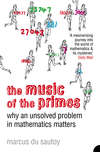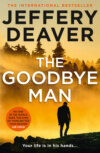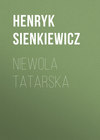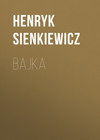Kitabı oku: «Pan Michael», sayfa 34
CHAPTER LII
That day Pan Michael went out with squadrons to assist Pan Vasilkovski, who had hastened on toward Hrynchuk, for news came that the Tartars had made an attack there, binding people, taking cattle, but not burning villages, so as not to rouse attention. Pan Vasilkovski soon scattered them, rescued the captives, and took prisoners. Pan Michael led these prisoners to Jvanyets, commissioning Pan Makovetski to torture them, and write down in order their confessions, so as to forward them to the hetman and the king. The Tartars confessed that, at command of the perkulab, they had crossed the boundary with Captain Styngan and Wallachians; but though burnt, they could not tell how far away the Sultan was at that time with all his forces, for, advancing in irregular bands, they did not maintain connection with the main army.
All, however, were at one in the statement that the Sultan had moved in force, that he was marching to the Commonwealth, and would be at Kamenyets soon. For the future defenders of Kamenyets there was nothing new in these confessions; but since in the king's palace they did not believe that there would be war, the chamberlain determined to send these prisoners, together with their statements, to Warsaw.
The scouting parties returned in good spirits from their first expedition. In the evening came the secretary of Habareskul, Pan Michael's Tartar brother, and the senior perkulab of Hotin. He brought no letters, for the perkulab was afraid to write; but he gave command to tell his brother Volodyovski, "the sight of his eye and the love of his heart," to be on his guard, and if Kamenyets had not troops enough for defence, to leave the town under some pretext, for the Sultan had been expected for two days with his whole force in Hotin.
Pan Michael sent his thanks to the perkulab, and rewarding the secretary, sent him home; he informed the commandants immediately of the approaching danger. Activity on works in the town was redoubled; Pan Hieronim Lantskoronski moved without a moment's delay to his Jvanyets, to have an eye on Hotin.
Some time passed in waiting; at last, on the second day of August, the Sultan halted at Hotin. His regiments spread out like a sea without shores; and at sight of the last town lying within the Padishah's dominions, Allah! Allah! was wrested from hundreds of thousands of throats. On the other side of the Dniester lay the defenceless Commonwealth, which those countless armies were to cover like a deluge, or devour like a flame. Throngs of warriors, unable to find places in the town, disposed themselves on the fields, – on those same fields, where some tens of years earlier, Polish sabres had scattered an equally numerous army of the Prophet. It seemed now that the hour of revenge had come; and no one in those wild legions, from the Sultan to the camp servant, had a feeling that for the Crescent those fields would be ill-omened a second time. Hope, nay, even certainty of victory rejoiced every heart. Janissaries and spahis, crowds of general militia from the Balkans, from the mountains of Rhodope, from Rumelia, from Pelion and Ossa, from Carmel and Lebanon, from the deserts of Arabia, from the banks of the Tigris, from the plains of the Nile, and the burning sands of Africa, giving out wild shouts, prayed to be led at once to the "infidel bank." But muezzins began to call from the minarets of Hotin to prayer; therefore all were silent. A sea of heads in turbans, caps, fezes, burnooses, kefis, and steel helmets inclined toward the earth; and through the fields went the deep murmur of prayer, like the sound of countless swarms of bees, and borne by the wind, it flew forward over the Dniester toward the Commonwealth.
Then drums, trumpets, and pipes were heard, giving notice of rest. Though the armies had marched slowly and comfortably, the Padishah wished to give them, after the long journey from Adrianople, a rest at the river. He performed ablutions himself in a clear spring flowing not far from the town, and rode thence to the konak of Hotin; but on the fields they began to pitch tents which soon covered, as with snow, the immeasurable extent of the country about.
The day was beautiful, and ended serenely. After the last evening prayers, the camp went to rest. Thousands and hundreds of thousands of fires were gleaming. From the small castle opposite, in Jvanyets, men looked on the light of these fires with alarm, for they were so wide-spread that the soldiers who went to reconnoitre said in their account, "It seemed to us that all Moldavia was under the fires." But as the bright moon rose higher in the starry sky, all died out save the watch-fires, the camp became quiet, and amid the silence of the night were heard only the neighing of horses and the bellowing of buffaloes, feeding on the meadows of Taraban.
But next morning, at daybreak, the Sultan commanded the janissaries and Tartars to cross the Dniester, and occupy Jvanyets, the town as well as the castle. The manful Pan Hieronim Lantskoronski did not wait behind the walls for them, but having at his side forty Tartars, eighty men of Kieff, and one squadron of his own, struck on the janissaries at the crossing; and in spite of a rattling fire from their muskets, he broke that splendid infantry, and they began to withdraw toward the river in disorder. But meanwhile, the chambul, reinforced by Lithuanian Tartars, who had crossed at the flank, broke into the town. Smoke and cries warned the brave chamberlain that the place was in the hands of the enemy. He gave command, therefore, to withdraw from the crossing, and succor the hapless inhabitants. The janissaries, being infantry, could not pursue, and he went at full speed to the rescue. He was just coming up, when, on a sudden, his own Tartars threw down their flag, and went over to the enemy. A moment of great peril followed. The chambul, aided by the traitors, and thinking that treason would bring confusion, struck hand to hand, with great force, on the chamberlain. Fortunately, the men of Kieff, roused by the example of their leader, gave violent resistance. The squadron broke the enemy, who were not in condition to meet regular Polish cavalry. The ground before the bridge was soon covered with corpses, especially of Lithuanian Tartars, who, more enduring than ordinary men of the horde, kept the field. Many of them were cut down in the streets later on. Lantskoronski, seeing that the janissaries were approaching from the water, sent to Kamenyets for succor, and withdrew behind the walls.
The Sultan had not thought of taking the castle of Jvanyets that day, thinking justly that he could crush it in the twinkle of an eye, at the general crossing of the armies. He wished only to occupy that point; and supposing the detachments which he sent to be amply sufficient, he sent no more, either of the janissaries or the horde. Those who were on the other bank of the river occupied the place a second time after the squadron had withdrawn behind the walls. They did not burn the town, so that it might serve in future as a refuge for their own, or for other detachments, and began to work in it with sabres and daggers. The janissaries seized young women in soldier fashion; the husbands and children they cut down with axes; the Tartars were occupied in taking plunder.
At that time the Poles saw from the bastion of the castle that cavalry was approaching from the direction of Kamenyets. Hearing this, Lantskoronski went out on the bastion himself, with a field-glass, and looked long and carefully. At last he said, —
"That is light cavalry from the Hreptyoff garrison; the same cavalry with which Vasilkovski went to Hrynchuk. Clearly they have sent him out this time. I see volunteers. It must be Humyetski!
"Praise be to God!" cried he, after a while. "Volodyovski himself is there, for I see dragoons. Gracious gentlemen, let us rush out again from behind the walls, and with God's help, we will drive the enemy, not only from the town, but from this side of the river."
Then he ran down with what breath he had, to draw up his men of Kieff and the squadron. Meanwhile the Tartars first in the town saw the approaching squadron, and shouting shrilly, "Allah!" began to gather in a chambul. Drums and whistles were heard in all the streets. The janissaries stood in order with that quickness in which few infantry on earth could compare with them.
The chambul flew out of the place as if blown by a whirlwind, and struck the light squadron. The chambul itself, not counting the Lithuanian Tartars, whom Lantskoronski had injured considerably, was three times more numerous than the garrison of Jvanyets and the approaching squadrons of reinforcement, hence it did not hesitate to spring on Pan Vasilkovski; but Pan Vasilkovski, a young, irrepressible man, who hurled himself against every danger with as much eagerness as blindness, commanded his soldiers to go at the highest speed, and flew on like a column of wind, not even observing the number of the enemy. Such daring troubled the Tartars, who had no liking whatever for hand-to-hand combat. Notwithstanding the shouting of murzas riding in the rear, the shrill whistle of pipes, and the roaring sound of drums calling to "kesim," – that is, to hewing heads from unbelievers, – they began to rein in, and hold back their horses. Evidently the hearts grew faint in them every moment, as did also their eagerness. Finally, at the distance of a bow-shot from the squadron, they opened on two sides, and sent a shower of arrows at the on-rushing cavalry.
Pan Vasilkovski, knowing nothing of the janissaries, who had formed beyond the houses toward the river, rushed with undiminished speed behind the Tartars, or rather behind one half the chambul. He came up, closed, and fell to slashing down those who, having inferior horses, could not flee quickly. The second half of the chambul turned then, wishing to surround him; but at that moment the volunteers rushed up, and the chamberlain came with his men of Kieff. The Tartars, pressed on so many sides, scattered like sand, and then began a rushing about, – that is, the pursuit of a group by a group, of a man by a man, – in which many of the horde fell, especially by the hand of Pan Vasilkovski, who struck blindly at whole crowds, just as a lark-falcon strikes sparrows or bunting.
But Pan Michael, a cool and keen soldier, did not let the dragoons out of his hand. Like a hunter who holds trained, eager dogs in strong leashes, not letting them go at a common beast, but only when he sees the flashing eyes and white teeth of a savage old boar, so the little knight, despising the fickle horde, was watching to see if spahis, janissaries, or some other chosen cavalry were not behind them.
Pan Lantskoronski rushed to him with his men of Kieff.
"My benefactor," cried he, "the janissaries are moving toward the river; let us press them!"
Pan Michael drew his rapier and commanded, "Forward!"
Each dragoon drew in his reins, so as to have his horse in hand; then the rank bent a little, and moved forward as regularly as if on parade. They went first at a trot, then at a gallop, but did not let their horses go yet at highest speed. Only when they had passed the houses built toward the water, east of the castle, did they see the white felt caps of the janissaries, and know that they had to do not with volunteer, but with regular janissaries.
"Strike!" cried Volodyovski.
The horses stretched themselves, almost rubbing the ground with their bellies, and hurled back lumps of hard earth with their hoofs.
The janissaries, not knowing what power was approaching to the succor of Jvanyets, were really withdrawing toward the river. One detachment, numbering two hundred and some tens of men, was already at the bank, and its first ranks were stepping onto scows; another detachment of equal force was going quickly, but in perfect order. When they saw the approaching cavalry they halted, and in one instant turned their faces to the enemy. Their muskets were lowered in a line, and a salvo thundered as at a review. What is more, these hardened warriors, considering that their comrades at the shore would support them with musketry, not only did not retreat after the volley, but shouted, and following their own smoke, struck in fury with their sabres on the cavalry. That was daring of which the janissaries alone were capable, but for which they paid dearly, because the riders, unable to restrain the horses, even had they the wish, struck them as a hammer strikes, and breaking them in a moment, scattered destruction and terror. The first rank fell under the force of the blow, as grain under a whirlwind. It is true that many fell only from the impetus, and these, springing up, ran in disorder to the river, from which the second detachment gave fire repeatedly, aiming high, so as to strike the dragoons over the heads of their comrades.
After a while there was evident hesitation among the janissaries at the scows, and also uncertainty whether to embark or follow the example of the other detachment, and engage hand to hand with the cavalry. But they were restrained from the last step by the sight of fleeing groups, which the cavalry pushed with the breasts of horses, and slashed so terribly that its fury could only be compared with its skill. At times such a group, when too much pressed, turned in desperation and began to bite, as a beast at bay bites when it sees that there is no escape for it. But just then those who were standing at the bank could see as on their palms that it was impossible to meet that cavalry with cold weapons, so far superior were they in the use of them. The defenders were cut with such regularity and swiftness that the eye could not follow the motion of the sabres. As when men of a good household, shelling peas well dried, strike industriously and quickly on the threshing-floor, so that the whole barn is thundering with the noise of the blows and the kernels are jumping toward every side, so did the whole river-bank thunder with sabre-blows, and the groups of janissaries, slashed without mercy, sprang hither and thither in every direction.
Pan Vasilkovski hurled himself forward at the head of this cavalry, caring nothing for his own life. But as a trained reaper surpasses a young fellow much stronger than he, but less skilled at the sickle, – for when the young man is toiling, and streams of sweat cover him, the other goes forward constantly, cutting down the grain evenly before him, – so did Pan Michael surpass the wild youth Vasilkovski. Before striking the janissaries he let the dragoons go ahead, and remained himself in the rear somewhat, to watch the whole battle. Standing thus at a distance, he looked carefully, but every little while he rushed into the conflict, struck, directed, then again let the battle push away from him; again he looked, again he struck. As usual in a battle with infantry, so it happened then, that the cavalry in rushing on passed the fugitives. A number of these, not having before them a road to the river, returned in flight to the town, so as to hide in the sunflowers growing in front of the houses; but Pan Michael saw them. He came up with the first two, and distributed two light blows between them; they fell at once, and digging the earth with their heels, sent forth their souls with their blood through the open wounds. Seeing this, a third fired at the little knight from a janissary musket, and missed; but the little knight struck him with his sword-edge between nose and mouth, and this deprived him of precious life. Then, without loitering. Pan Michael sprang after the others; and not so quickly does a village youth gather mushrooms growing in a bunch, as he gathered those men before they ran to the sunflowers. Only the last two did soldiers of Jvanyets seize; the little knight gave command to keep these two alive.
When he had warmed himself a little, and saw that the janissaries were hotly pressed at the river, he sprang into the thick of the battle, and coming up with the dragoons, began real labor. Now he struck in front, now he turned to the right or the left, gave a thrust with his blade and looked no farther; each time a white cap fell to the ground. The janissaries began to crowd from before him with an outcry; he redoubled the swiftness of his blows; and though he remained calm himself, no eye could follow the movements of his sabre, and know when he would strike or when he would thrust, for his sabre described one bright circle around him.
Pan Lantskoronski, who had long heard of him as a master above masters, but had not seen him hitherto in action, stopped fighting and looked on with amazement; unable to believe his own eyes, he could not think that one man, though a master, and famous, could accomplish so much. He seized his head, therefore, and his comrades around only heard him repeating continually, "As God lives, they have told little of him yet!" And others cried, "Look at him, for you will not see that again in this world!" But Pan Michael worked on.
The janissaries, pushed to the river, began now to crowd in disorder to the scows. Since there were scows enough, and fewer men were returning than had come, they took their places quickly and easily. Then the heavy oars moved, and between the janissaries and the bank was formed an interval of water which widened every instant. But from the scows guns began to thunder, whereupon the dragoons thundered in answer from their muskets; smoke rose over the water in cloudlets, then stretched out in long strips. The scows, and with them the janissaries, receded every moment. The dragoons, who held the field, raised a fierce shout, and threatening with their fists, called, —
"Ah, thou dog, off with thee! off with thee!"
Pan Lantskoronski, though the balls were plashing still, seized Pan Michael by the shoulders right at the bank.
"I did not believe my eyes," said he, "those, my benefactor, are wonders which deserve a golden pen!"
"Native ability and training," answered Pan Michael, "that's the whole matter! How many wars have I passed through?"
Then returning Lantskoronski's pressure, he freed himself, and looking at the bank, cried, —
"Look, your grace; you will see another power."
The chamberlain turned, and saw an officer drawing a bow on the bank. It was Pan Mushalski.
Hitherto the famous bowman had been struggling with others in hand-to-hand conflicts with the enemy; but now, when the janissaries had withdrawn to such a distance that bullets and pistol-balls could not reach them, he drew his bow, and standing on the bank at its highest point he tried the string first with his finger, when it twanged sharply; he placed on it the feathered arrow – and aimed.
At that moment Pan Michael and Lantskoronski looked at him. It was a beautiful picture. The bowman was sitting on his horse; he held his left hand out straight before him, in it the bow, as if in a vice. The right hand he drew with increasing force to the nipple of his breast, till the veins were swelling on his forehead, and he aimed carefully. In the distance were visible, under a cloud of smoke, a number of scows moving on the river, which was very high, from snow melting on the mountains, and was so transparent that the scows and the janissaries sitting on them were reflected in the water. Pistols on the bank were silent; eyes were turned on Pan Mushalski, or looked in the direction in which his murderous arrow was to go.
Now the string sounded loudly, and the feathered arrow left the bow. No eye could catch its flight; but all saw perfectly how a sturdy janissary, standing at an oar, threw out his arms on a sudden, and turning on the spot, dropped into the river. The transparent surface spurted up from his weight; and Pan Mushalski said, —
"For thee, Didyuk." Then he sought another arrow. "In honor of the hetman," said he to his comrades. They held their breath; after a while the air whistled again, and a second janissary fell on the scow.
On all the scows the oars began to move more quickly; they struck the clear river vigorously; but the famous bowman turned with a smile to the little knight, – "In honor of the worthy wife of your grace!" A third time the bow was stretched; a third time he sent out a bitter arrow; and a third time it sank half its shaft's length in the body of a man. A shout of triumph thundered on the bank, a shout of rage from the scows. Then Pan Mushalski withdrew; and after him followed other victors of the day, and went to the town.
While returning, they looked with pleasure on the harvest of that day. Few of the horde had perished, for they had not fought well even once; and put to flight, they recrossed the river quickly. But the janissaries lay to the number of some tens of men, like bundles of firmly bound grain. A few were struggling yet, but all had been stripped by the servants of the chamberlain. Looking at them, Pan Michael said, —
"Brave infantry! the men move to the conflict like wild boars; but they do not know beyond half what the Swedes do."
"They fired as a man would crack nuts," said the chamberlain.
"That came of itself, not through training, for they have no general training. They were of the Sultan's guard, and they are disciplined in some fashion; besides these there are irregular janissaries, considerably inferior."
"We have given them a keepsake! God is gracious, that we begin the war with such a noteworthy victory."
But the experienced Pan Michael had another opinion.
"This is a small victory, insignificant," said he. "It is good to raise courage in men without training and in townspeople, but will have no result."
"But do you think courage will not break in the Pagans?"
"In the Pagans courage will not break," said Pan Michael.
Thus conversing, they reached Jvanyets, where the people gave them the two captured janissaries who had tried to hide from Pan Michael in the sunflowers.
One was wounded somewhat, the other perfectly well and full of wild courage. When he reached the castle, the little knight, who understood Turkish well, though he did not speak it fluently, asked Pan Makovetski to question the man. Pan Makovetski asked if the Sultan was in Hotin himself, and if he would come soon to Kamenyets.
The Turk answered clearly, but insolently, —
"The Padishah is present himself. They said in the camp that to-morrow Halil Pasha and Murad Pasha would cross, taking engineers with them. To-morrow, or after to-morrow, the hour of destruction will come on you."
Here the prisoner put his hands on his hips, and, confident in the terror of the Sultan's name, continued, —
"Mad Poles! how did you dare at the side of the Sultan to fall on his people and strike them? Do you think that hard punishment will miss you? Can that little castle protect you? What will you be in a few days but captives? What are you this day but dogs springing in the face of your master?"
Pan Makovetski wrote down everything carefully; but Pan Michael, wishing to temper the insolence of the prisoner, struck him on the face at the last words. The Turk was confused, and gained respect for the little knight straightway, and in general began to express himself more decently. When the examination was over, and they brought him to the hall, Pan Michael said, —
"It is necessary to send these prisoners and their confession on a gallop to Warsaw, for at the king's court they do not believe yet that there will be war."
"And what do you think, gentlemen, did that prisoner tell the truth, or did he lie altogether?"
"If it please you, gentlemen," said Volodyovski, "it is possible to scorch his heels. I have a sergeant who executed Azya, the son of Tugai Bey, and who in these matters is exquisitissimus; but, to my thinking, the janissary has told the truth in everything. The crossing will begin soon; we cannot stop it, – no! even if there were a hundred times as many of us. Therefore nothing is left but to assemble, and go to Kamenyets with the news."
"I have done so well at Jvanyets that I would shut myself up in the castle with pleasure," said the chamberlain, "were I sure that you would come from time to time with succor from Kamenyets. After that, let happen what would!"
"They have two hundred cannon," said Pan Michael; "and if they bring over two heavy guns, this castle will not hold out one day. I too wished to shut myself up in it, but now I know that to be useless."
Others agreed with the little knight. Pan Lantskoronski, as if to show courage, insisted for a time yet on staying in Jvanyets; but he was too experienced a soldier not to see that Volodyovski was right. At last he was interrupted by Pan Vasilkovski, who, coming from the field, rushed in quickly.
"Gracious gentlemen," said he, "the river is not to be seen; the whole Dneister is covered with rafts."
"Are they crossing?" inquired all at once.
"They are, as true as life! The Turks are on the rafts, and the chambuls in the ford, the men holding the horses' tails."
Pan Lantskoronski hesitated no longer; he gave orders at once to sink the old howitzer, and either to hide the other things, or take them to Kamenyets. Pan Michael sprang to his horse, and went with his men to a distant height to look at the crossing.
Halil Pasha and Murad Pasha were crossing indeed. As far as the eye reached, it saw scows and rafts, pushed forward by oars, with measured movement, in the clear water. Janissaries and spahis were moving together in great numbers; vessels for crossing had been prepared at Hotin a long time. Besides, great masses of troops were standing on the shore at a distance. Pan Michael supposed that they would build a bridge; but the Sultan had not moved his main force yet. Meanwhile Pan Lantskoronski came up with his men, and they marched toward Kamenyets with the little knight. Pan Pototski was waiting in the town for them. His quarters were filled with higher officers; and before his quarters both sexes were assembled, unquiet, careworn, curious.
"The enemy is crossing, and Jvanyets is occupied!" said the little knight.
"The works are finished, and we are waiting," answered Pan Pototski.
The news went to the crowd, who began to roar like a river.
"To the gates! to the gates!" was heard through the town. "The enemy is in Jvanyets!" Men and women ran to the bastions, expecting to see the enemy; but the soldiers would not let them go to the places appointed for service.
"Go to your houses!" cried they to the crowds; "you will hinder the defence. Soon will your wives see the Turks near at hand."
Moreover, there was no alarm in the town, for already news had gone around of the victory of that day, and news naturally exaggerated. The soldiers told wonders of the meeting.
"Pan Volodyovski defeated the janissaries, the Sultan's own guard," repeated all mouths. "It is not for Pagans to measure strength with Pan Volodyovski. He cut down the pasha himself. The Devil is not so terrible as he is painted! And they did not withstand our troops. Good for you, dog-brothers! Destruction to you and your Sultan!"
The women showed themselves again at the intrenchments and bastions, but laden with flasks of gorailka, wine, and mead. This time they were received willingly; and gladness began among the soldiers. Pan Pototski did not oppose this; wishing to sustain courage in the men and cheerfulness, because there was an inexhaustible abundance of ammunition in the town and the castle, he permitted them to fire salvos, hoping that these sounds of joy would confuse the enemy not a little, should they hear them.
Pan Michael remained at the quarters of the starosta till nightfall, when he mounted his horse and was escaping in secret with his servant to the cloister, wishing to be with his wife as soon as possible. But his attempts came to nothing, for he was recognized, and dense crowds surrounded his horse. Shouts and vivats began. Mothers raised their children to him. "There he is! look at him, remember him!" repeated many voices. They admired him immensely; but people unacquainted with war were astonished at his diminutive stature. It could not find place in the heads of the towns-people that a man so small, and with such a pleasant face, could be the most terrible soldier of the Commonwealth, – a soldier whom none could resist. But he rode among the crowds, and smiled from time to time, for he was pleased. When he came to the cloister, he fell into the open arms of Basia.
She knew already of his deeds done that day and all his masterly blows; the chamberlain of Podolia had just left the cloister, and, as an eye-witness, had given her a detailed report. Basia, at the beginning of the narrative, called the women present in the cloister hence, – the abbess and the wives of Makovetski, Humyetski, Ketling, Hotsimirski; and as the chamberlain went on, she began to plume herself immensely before them. Pan Michael came just after the women had gone.
When greetings were finished, the wearied knight sat down to supper. Basia sat at his side, placed food on his plate, and poured mead into his goblet. He ate and drank willingly, for he had put almost nothing in his mouth the whole day. In the intervals he related something too; and Basia, listening with gleaming eyes, shook her head, according to custom, asking, —
"Ah, ha! Well? and what?"
"There are strong men among them, and very fierce; but it is hard to find a Turk who's a swordsman," said the little knight.
"Then I could meet any of them?"
"You might, only you will not, for I will not take you."
"Even once in my life! You know, Michael, when you go outside the walls, I am not even alarmed; I know that no one can reach you."
"But can't they shoot me?"
"Be quiet! Isn't there a Lord God? You will not let them cut you down, – that is the main thing."
"I will not let one or two slay me."
"Nor three, Michael, nor four."
"Nor four thousand," said Zagloba, mimicking her. "If you knew, Michael, what she did when the chamberlain was telling his story. I thought I should burst from laughter. As God is dear to me! she snorted just like a goat, and looked into the face of each woman in turn to see if she was delighted in a fitting manner. In the end I was afraid that the goat would go to butting, – no very polite spectacle."















